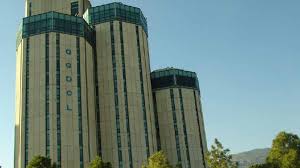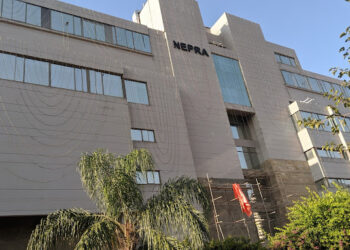ISLAMABAD: The crucial Reko-Diq project will be developed in two phases and will require $6.765 billion for Phase 1. This amount includes $5.566 billion in capital expenditure (capex), along with an estimated $1.199 billion to cover interest on project financing and inflation during construction. Phase 2 is expected to be self-funded through the project’s revenue, according to sources close to Newzshewz.
Sharing the details Pursuant to the Cabinet decision of December 13, 2022 in relation to the reconstituted Reko-Diq Project: (i) the Government of Pakistan (GoP), Provincial Government of Balochistan (GoB), Balochistan Mineral Resources Limited (BMRL), Pakistan Petroleum Limited (PPL), Oil and Gas Development Company Limited (OGDCL), Government Holdings (Private) Limited (GHPL) (PPL, OGDCL, and GHPL, collectively, the SOEs), and Pakistan Minerals (Private) Limited (a jointly owned special purpose vehicle owned by the SOES, PMPL) entered into a Joint Venture Agreement with Barrick Gold Corporation (Barrick), Barrick Reko Diq Holdings Limited (Barrick Shareholder), Reko Diq Investments Limited (RDIL), Reko Diq Holdings Limited (RDHL), and Reko Diq Mining Company (Private) Limited (RDMC) (in its capacity as the project company) on December 15, 2022 (JVA); and (ii) the GoP, the GoB, Barrick and RDMC entered into a Mineral Agreement dated 15 December 2022 (Mineral Agreement), in connection with the development of the Reko-Diq Project located in the Province of Balochistan (Project) (GoP, GoB, BMRL, SOES, PMPL, Barrick, Barrick Shareholder, and RDMC, collectively, the Project Parties).
The Project Parties’ shareholdings in the Project are as follows: (i) Barrick: 50%; (ii) GoB: 25% (10% direct free carried and 15% indirect contributing interest held through BMRL); and(iii) SOEs: collectively holding 25% indirectly through PMPL.
2The Cabinet also approved the funding obligations of PMPL and BMRL of $ 1.194 billion and $ 717 million, respectively, under the initial overall development plan which provided for project cost estimates of $ 4.297 billion, subject to adjustment for inflation. In accordance with Cabinet’s decision, GoP (on behalf of GoB) and SOEs have paid the actual expenditures for 2023 and 2024.
The respective funding obligations of PMPL and BMRL were also subject to change depending on the availability of project financing. Since the date of the Cabinet’s approval, the final feasibility study for the Project has been completed (Feasibility Study) in January 2025. As per the Feasibility Study, the project will be developed in two phases and will require $ 6.765 billion for Phase-1 (including capex of $ 5.566 billion plus estimated $ 1.199 billion for interest on project financing and inflation during construction). Phase-2 is expected to be self-funded through project revenue. Based on the Feasibility Study, Barrick has approved the revised overall development plan (final overall development plan) in February 2025 subject to project financing.
This plan is then required to be approved by the Project Company and will form the basis of the revised funding obligations of PMPI and RMRI Therefore the necessary approvals are required before approval of the Final Overall Development Plan by the Project Company which is planned in April 2025.
The Final Overall Development Plan provides an estimate of the overall project cost of $ 6.765 billion for Phase-1 (including capex of $ 5.566 billion plus estimated $ 1.199 billion for interest on project financing and inflation during construction). Consequently, the funding obligations of PMPL and BMRL, reflecting their pro rata share of the funding requirements, become $ 1.879 billion (compared to earlier requirement of $ 1.194 billion) and $ 1.128 billion (compared to earlier requirement of $ 717 million), respectively (as may be further adjusted for inflation in accordance with the terms of the JVA). However, these funding obligations may reduce depending on the quantum of project financing.
As contemplated by the Mineral Agreement and the JVA, the Project Parties agreed to partially finance the Project with proceeds from project financing. Accordingly, the Project Parties have prepared a Long Form Term Sheet (LFTS) setting out the common terms of the secured debt financing of the Project (Project Financing) and engaged in detailed negotiations with the relevant agency lenders thereon. The Project Parties have also initiated the process of securing financing for the Project from commercial banks under the guarantees/insurance issued by certain export credit agencies. The LFTS will be finalized following further negotiation among the parties. In connection with the Project Financing and pursuant to the LFTS, the GoP, the GoB, the SOEs, PMPL and BMRL will be required to enter into certain agreements, including, among other ancillary agreements that may be necessary or desirable: (i) Completion Agreements (to be executed by the SOEs and the GoB); (ii) the Transfer Agreements (to be executed by the SOEs, PMPL, GoB, and BMRL); (iii) the Government Direct Agreement (to be executed by the GoP and the GoB with the lenders); (iv) the GoP Guarantee (to be executed by the GoP with the lenders); and (v) the ADB Guarantee (to be executed by the GoP). Further, the intended primary parties.
The salient terms of the Government Direct Agreement, the GoB Completion Agreement, and the Transfer Restrictions Agreement, are required to be approved by Cabinet of the Provincial Government of Balochistan.
In view of the foregoing and under Rule-16(1)(k) read with Rule 17(1)(c) of the Rules of Business 1973, the following proposals were submitted for consideration of ECC of the Federal Cabinet: (i) pursuant to the terms of the LFTS, the GOP (through the Ministry of Finance or the Ministry of Energy (Petroleum Division), as the case may be) is authorized to finalize the relevant documents. The relevant parties execute all necessary documents ;(ii) to permit the SOEs to issue a guarantee through Completion Agreement to offshore third party lenders, pursuant to which the SOEs will (on a joint and several basis) unconditionally and irrevocably guarantee the SOEs’ pro rata share of the full and punctual payment by RDMC of all secured debt obligations under the Project Financing on a scheduled basis or, following certain fundamental events of default, on an accelerated basis ;(iii) permission to the SOEs by giving an upfront approval to repatriate funds through PMPL over a period of seven years or more starting January 2023 (pursuant to Cabinet’s decision of December 13, 2022), to meet its shareholder funding commitment with respect to the Project up to its proportionate share of $ 1.879 billion million, which may in the form of equity or shareholder loan (to be funded in local currency or foreign exchange), as set out in paragraph-4 above and in accordance with the Final Overall Development Plan and the JVA. For the SOEs, their Foreign Exchange requirement for the proposed investment will be initially arranged by OGDCL and PPL from their own foreign exchange resources. However, in case of a shortfall with respect to OGDCL and PPL’s Foreign Exchange, and for GHPL,
the Government of Pakistan will provide the required Foreign Exchange ;(iv) permission to BMRL by giving an upfront approval to repatriate funds over a period of seven years or more starting January 2023 (pursuant to Cabinet’s decision of December 13, 2022), to meet its shareholder funding commitment with respect to the Project up to its proportionate share being $ 1.128 billion, which may in the form of equity or shareholder loan and which may be funded in local currency or Foreign Exchange by or on behalf of BMRL by the GoP, as set out in accordance with the Final Overall Development Plan and the JVA ;(v) to give effect to the matters appropriate directions to be issued to SBP under section 25 of the Foreign Exchange Regulation Act, 1947 (FERA).
The sources said, Petroleum Ministry argued that the proposal was being submitted for approval, it being understood that currently the detailed terms of each of the agreements referred to in paragraph-6 above are under negotiation, and the ECC’S formal approval of the substantially final terms of such agreements will be sought in due course.
On Tuesday , the ECC took up a summary by the Petroleum Division regarding the Reko-Diq Project and changes in its overall development plan and related financial commitments and project finance considerations due to inflation and enhanced scope of the project concerning capacity, energy mix, alternative water supply options and updated processing plants and machinery.
The ECC noted the factors leading to the project escalations, and approved the proposals contained in the summary with the directions to the Ministries of Petroleum & Finance to continue close coordination with a view to ensuring timely implementation of all agreed actions. The ECC assured full support for the Reko-Diq Project, calling it a project of immense national importance.
Ends














